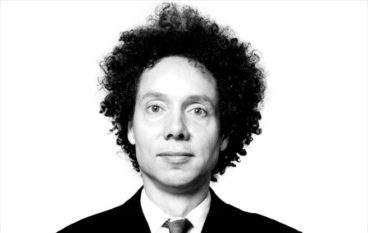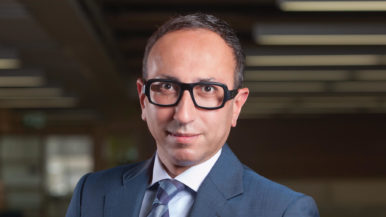Q&A: Malcolm Gladwell on why it pays to be an underdog
In Malcolm Gladwell’s new book, David and Goliath, the bestselling pop sociologist Gladsplains the art of beating the odds

The new book is all about how supposed losers often come out on top. What got you thinking about underdogs?
I was fascinated by the fact that so many successful people had the most harrowing childhoods. In a room full of successful entrepreneurs, for example, the percentage that have been diagnosed with a learning disorder is often through the roof.
You claim that we’ve got the David and Goliath story all wrong. How so?
It’s not a story about an improbable victory by a waifish underdog. It’s about David’s audacity. Goliath was heavy infantry, which was vulnerable to slingers, so a contemporary observer seeing David run down into the valley with his sling would’ve said, “It’s over: David’s going to win.”
Do Davids always become Goliaths and lose their edge?
The timeline of underdogginess is really interesting. If you’re Microsoft, and you want to stay innovative, maybe you should be constantly peeling off parts before you become too big. Or with wealthy people: so much of their success arises out of a demanding and difficult childhood, and then they raise their own children in conditions diametrically opposed to that.
The ideas behind your books seem ripe for misinterpretation. Does that happen a lot?
Readers always use a book for their own purposes. I thought Blink was about how powerful and potentially dangerous first impressions are. The number of people who share that interpretation is quite small.
Do you consider yourself an underdog who has overcome disadvantages to become rich and famous?
Not at all! I could not have grown up in a happier, more supporting environment than Elmira, Ontario, in the ’70s—I think of it as the apotheosis of human civilization. You can’t improve on it.
Available Oct. 1.
By Andrew D’Cruz, Sue Carter Flinn, Emily Landau, Alison Mah, Jason McBride, Courtney Shea, Stéphanie Verge, Chris Webster and Nathan Whitlock






I am actually looking forward to this one.
Yup, me too. Always a pleasurable read.
Looking forward to having our collective perspectives flipped once again
I’ve learned from every book he has written. Gladwell always makes me think with a new perspective.
As an underdog in the next mayoral election, I am considering having a look at this book. But has any of Gladwell’s books actually *helped* anyone—not just by changing one’s outlook but rather significantly changing one’s behaviour to their betterment?
Ditto Russell White’s comment. I’m not sure Gladwell’s books are meant to help, as much as to inform (which is often helpful). Personally, I found both “Blink” and “Outliers” paradigm-shifting in many useful ways.
I guess it can be said that no book or other self-help product can really help, but yes, I agree that hard data and inspiring anecdotes, which Gladwell’s books contain, do help in helping one’s self.
When my first book, ‘Black Passenger Yellow Cabs’ was published, someone actually told me my work reminded him of Gladwell’s. I took it as a great compliment, but I know that guy was exaggerating.
A critical review of the book: http://online.wsj.com/article/SB10001424052702304713704579093090254007968.html